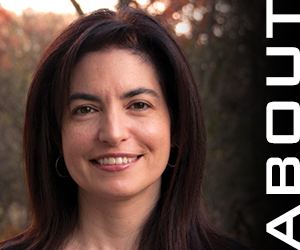Corporate Minds | Summer 2016
A Dash of Big Data
Soupe du jour or recipe for change?

Rose Cammarata, CPA, CGMA
Senior Director/Assistant Controller, CDK Global Inc.
Top Issues in Corporate Finance
Big data this and big data that; you can't open a single business journal today without seeing big data covered in some way. while big data is a popular concept, it’s more than just a fad; it’s changing the way businesses operate across the board.
Big Data encompasses amazing new technologies that have made data storage, maintenance and analysis significantly more economical, efficient and downright productive. We’re all familiar with megabytes, but what about the zettabyte? A zettabyte is sextillion bytes (aka a lot of data), and today’s technologies are allowing us to mine this information faster than ever before. Faster access to significantly more data means more advances in analytical technique, access to deeper data-driven insights, and access to ongoing real-time data analysis.
For corporate finance professionals, that translates into the need to become more tech savvy—ASAP. The availability of more data and the advanced tools and techniques used to analyze it are presenting us with a unique opportunity to hone new skills and specialties that allow us to provide valuable data-driven insights and make better business decisions.
As finance professionals, we’re uniquely qualified to transform data into meaningful subject matter; however, if you didn’t minor in data science, terms like "k-means clustering" and "bag of words modeling" may leave you lost in translation.
So where do you go to develop your data literacy? I recommend starting here:
Big Data Beyond the Hype: A Guide to Conversations for Today’s Data Center
Authored by Paul Zikopoulos, et al, Zikopoulos leads IBM’s Big Data and analytics efforts, and I was fortunate to see him present at the AICPA's Spring Council meeting earlier this year. He has an easy, conversational style that makes technical concepts very accessible. The aim of his book is to help you hold your own in a conversation about Big Data. It’s available in various formats, but here’s a hint: If you Google the title, you can find
free digital copies from IBM and other providers.
The Signal and the Noise: Why So Many Predictions Fail But Some Don't
If you haven’t taken a statistics course recently,
this book, authored by Nate Silver, is a good refresher on what predictive science can and can't do. It’s also a reminder that correlation is not causality and extra decimal points don’t necessarily make a model more precise. Silver is famous for his near perfect predictions of the 2008 and 2012 presidential election outcomes, and in this book he shows us the importance of understanding how our cognitive biases may lead us to misapply data in decision-making.
Data Smart: Using Data Science to Transform Information into Insight
We CPAs love Excel, right? Well
this book, authored by John W. Foreman, will show you how to design data models in Microsoft Excel, apply various data science techniques to both structured and unstructured data and draw insights from these models and techniques to benefit your business, large or small. Once you've learned how to apply a naive Bayes model to unstructured language data, pivot tables and VLOOKUPs will seem utterly passé.
Curated TED Talks Series, Making Sense of Too Much Data
This is another great resource. If you aren’t familiar with
TED Talks, you’re missing out. Wondering what to do with all of the information your company collects? Not sure what data is ethical to collect or share? Need to understand what our infinite amounts of data can do? This collection of talks takes on these fascinating questions and offers some great real-life applications of Big Data.
Big Data Education
If you’re up for it, there are plenty of educational resources out there for you to dive into headfirst. For instance, there are MOOCs (massive open online courses) available about Big Data and data science through
Coursera.org. These courses generally take place over several weeks and include a variety of assignments and opportunities to participate in discussion forums. Best of all, many of Coursera’s courses are free if you don’t need certification. Johns Hopkins University offers an Executive Data Science series of five courses through Coursera. If you don't have time for the whole series, I recommend the first course, “A Crash Course in Data Science.” Additionally, the
University of Pennsylvania offers a Business Analytics course series that provides instruction on building models for various types of data.
Big Data is hot, and shows no signs of cooling. I suggest you get your first taste if you haven’t done so already.